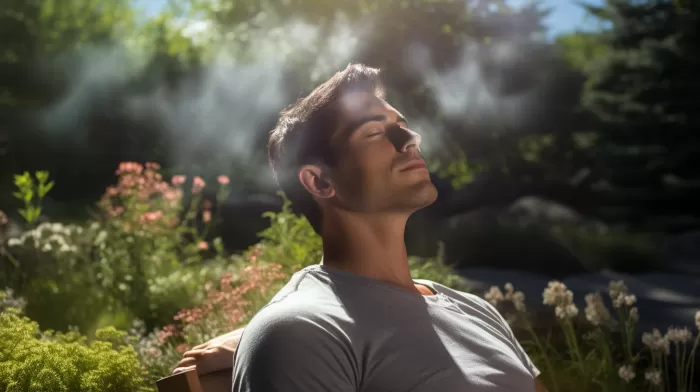Adopting a paleo diet and lifestyle can provide numerous advantages. One simple paleo practice can help you decrease your risk of both cancer and heart disease: spending time in the sun.
Research findings supporting the health advantages of sunlight exposure are extensive. To attain optimal health, it’s crucial to absorb sunlight, similar to how your ancestors did. However, it’s essential not to overdo it as getting sunburned can increase the risk of skin cancer.
The health benefits of sunlight are not only about the vitamin D produced in your skin when it’s exposed to the right amount of ultraviolet B rays (UVB) from the sun; it has other advantages too.
Studies conducted at the Universities of Southampton and Edinburgh reveal that when sunlight touches your skin, it affects nitric oxide (NO) levels. NO subsequently reduces blood pressure and helps blood vessel walls relax, protecting your heart. According to researcher Martin Feelisch, NO is involved in regulating blood pressure. Small amounts of NO from the skin transfer to the bloodstream when exposed to sunlight, reducing blood vessel tone. This lowers the risk of heart attack and stroke.
The research suggests UVA helps dilate blood vessels, significantly reducing blood pressure and changing NO metabolite levels without impacting vitamin D levels. In future studies, the researchers plan to analyze whether these effects remain constant in a more chronic setting and explore new nutritional strategies aimed at maximizing the skin’s ability to store NO and deliver it to the circulation more efficiently.
The seasonal lack of sunlight may explain why blood pressure increases in the colder months, and the risk of heart issues rises.
Numerous research efforts show that sun exposure in moderation reduces the risk of cancer and other severe health conditions. For instance, a study at the University of Wisconsin-Madison found that producing vitamin D from sunlight exposure can help reduce symptoms of multiple sclerosis. In contrast, research at the University of Southern California Keck School of Medicine discovered that ample sunlight exposure can significantly reduce a man’s risk of prostate cancer. Further analysis of data from the US Nurses’ Health Study (NHS) showed that sunlight could help protect against rheumatoid arthritis.
It’s worth noting that sunscreen might not always be the best way to protect your skin from sunburn. Some sunscreens are believed to increase the risk of DNA damage from sun exposure, even if they prevent burning. Instead, it’s advisable to wear a hat and get out of the sun when your skin has a slight tan, and you’ve had enough sun exposure.
Additionally, consuming plenty of fruits and vegetables can help your skin make the most of the sun’s health benefits. Your body requires certain nutrients to protect it from sun damage:
- Vitamin C: found in citrus fruits, berries, and kiwi fruit.
- Vitamin E: present in nuts, rich in various forms of vitamin E.
- Lutein and zeaxanthin: found in egg yolks, kiwi fruit, grapes, spinach, oranges, and squash.



